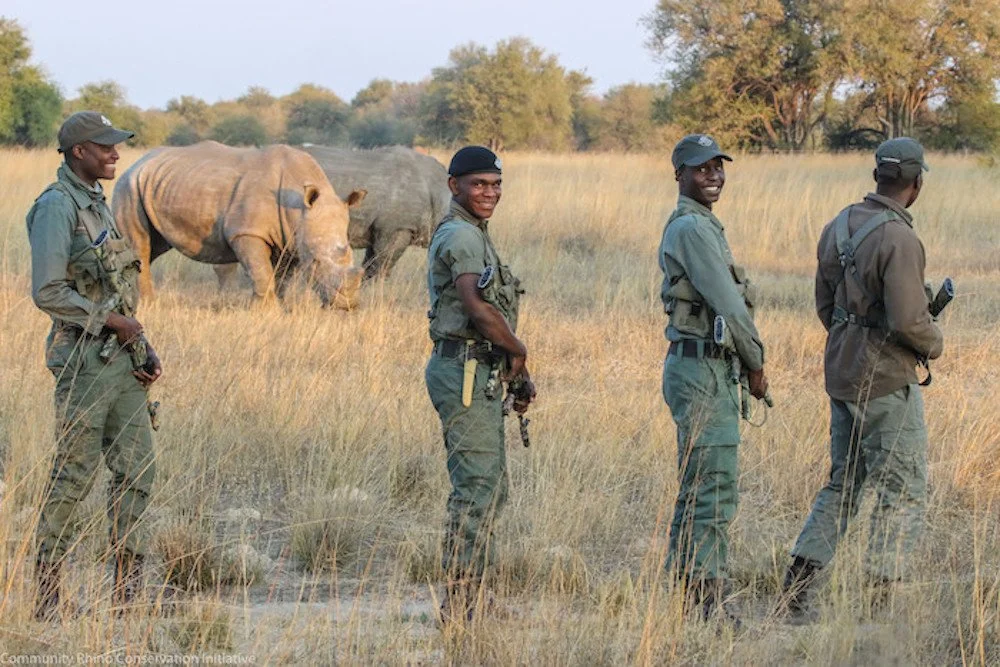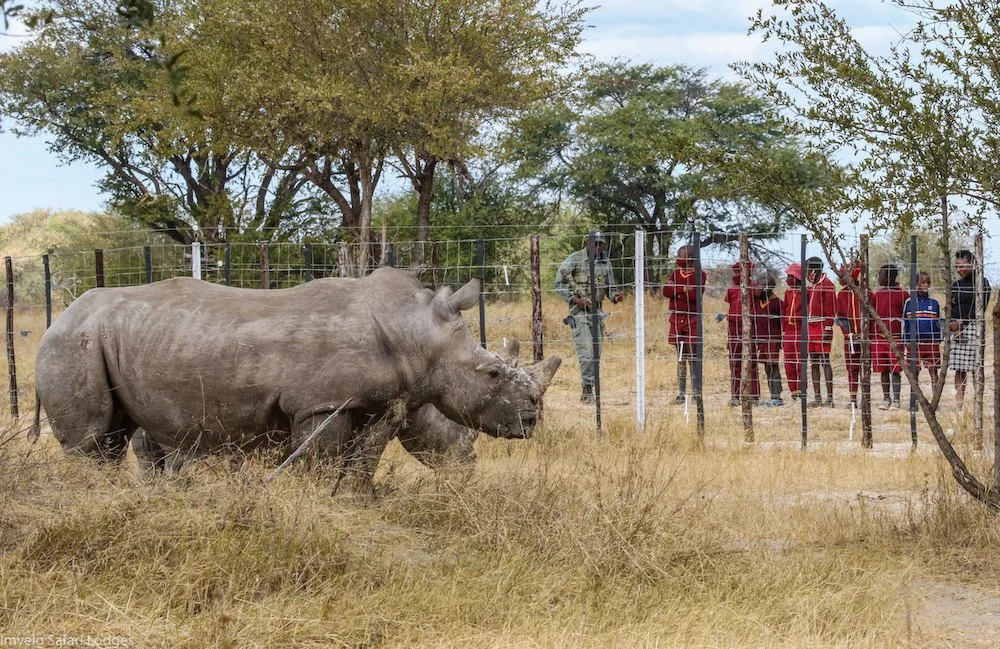Conservation Toursim: what is it and why is it so important…
Ensuring the security of rhino and wildlife through the COBRAS Community Wildlife Protection Unit.
Image via Community Rhino Conservation Initiative.
What is Conservation Tourism?
Conservation tourism is a form of tourism that is focused on the preservation of natural resources and ecosystems. It is a type of sustainable tourism that seeks to minimize the negative impact of tourism on the environment by working to preserve and protect endangered species and habitats.
Why is Conservation Tourism Important?
Conservation tourism can play a vital role in the protection of endangered species and habitats. It can help to fund conservation efforts and support sustainable development. It can also raise awareness about environmental issues and inspire people to take action to protect the planet. By supporting conservation projects, this type of tourism can help to preserve the world’s natural resources and ensure that future generations can enjoy them.
Endangered Species in Africa
There are many endangered species in Africa, including lions, elephants, rhinos, and gorillas that we are on the brink of losing if more is not done. These animals are at risk of extinction due to habitat loss, poaching, and the illegal trade in wildlife. Throughout the world, tourism is stepping up to create meaningful tourism with benefits to communities to thrive from the collaborative protection of these vulnerable species.
Here are a few examples of conservation tourism in Africa:
The Gorilla Habituation Experience in Uganda. This project allows tourists to observe gorillas up close as they go about their daily lives. The money raised from this experience helps to fund gorilla conservation efforts, including research, habitat protection, and community outreach.
Baby Mountain Gorilla in Uganda. Image via Wild at Heart Journeys
African Parks is a nonprofit conservation organization that takes on the complete responsibility for the rehabilitation and long-term management of national parks in partnership with governments and local communities in Africa. Through managing the national parks and improving infrastructure it allows visitors to see African wildlife in their natural habitat while also supporting conservation efforts. Proceeds from tourism revenue are invested back into the park and the local community.
A great example of their work is in Liuwa Plains, Zambia. The partnership between African Parks with Time+Tide to create, a five-star luxury camp, King Lewanika Lodge, which was featured in TIME Magazine’s ‘2018 100 Greatest Places’ and Travel + Leisure’s hotel ‘It List’ for 2018.
View of Liuwa Plains from King Lewanika Lodge Main Area. Image via King Lewanika Camp
In May of this year Imvelo Lodges and its Community Rhino Conservation Initiative (CRCI) reintroduced rhino to Hwange National Park, Zimbabwe for the first time since 2007. They established a highly protected rhino sanctuary on community land bordering the Park. This is to be the beginning of a bigger conservancy and buffer zone between Park and community, supporting local people through gate entry fees, jobs, increased tourism and reduced human wildlife conflict.
Students from the local community learning about Rhinos . Image via Community Rhino Conservation Initiative.
Singita Lodges, with lodges in Rwanda, South Africa, Tanzania, and Zimbabwe work to create a balance between conservation and tourism. Their lodges are designed to have minimal impact on the environment. A portion of the proceeds from each guest stay goes towards conservation projects and community enrichment programs in the area.
Planting trees for Kwitonda’s reforestation project. Volcanoes National Park, Rwanda Image via Kwitonda Lodge
These are just a few examples of the many conservation tourism projects that are making a difference in Africa.
If you’re interested in Conservation Tourism, there are many ways that you can get involved. You can support conservation projects by making a donation or volunteering your time. You can also raise awareness about environmental issues by sharing information with your friends and family. And, when you travel, you can look for opportunities to visit places that are working to protect the planet.
Start Planning
An incredibly thrilling experience, we love working with clients to make the dream of a conservation safari come true. To get started planning this or any other of our itineraries, call us at 1-844-945-7697 or get in touch by email. We can’t wait to create your wild at heart journey!
Robin Francis of WAHJ has been providing African travel services for over 10 years and travels frequently to the continent to meet with partners and experience their lodging, amenities, and activities first hand. Partners regard her as one of the most knowledgeable African travel consultants in the US, who has also invested in giving back to the communities she works with. Robin and WAHJ are available for complete travel booking throughout Africa or consulting on bookings made through other providers.





